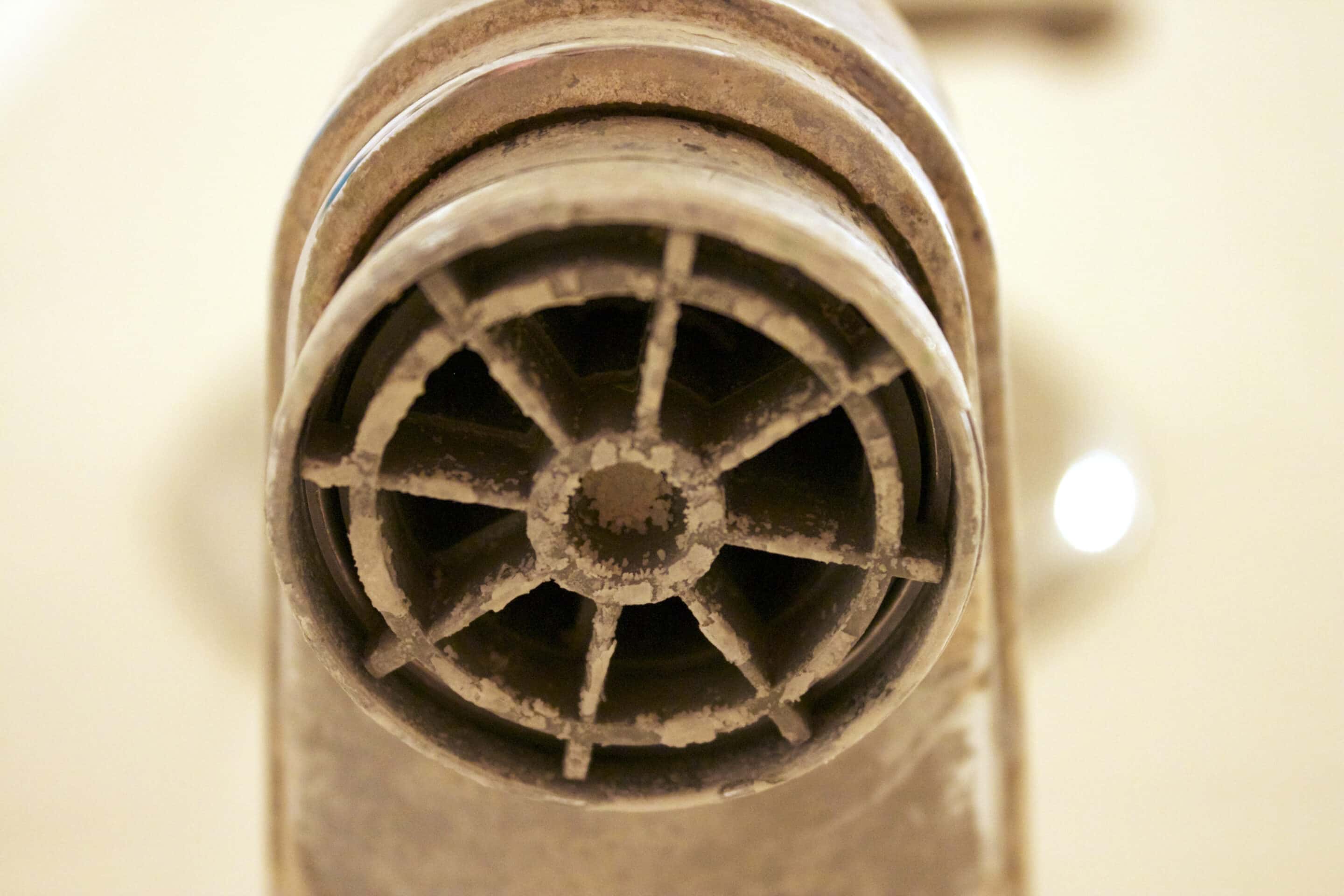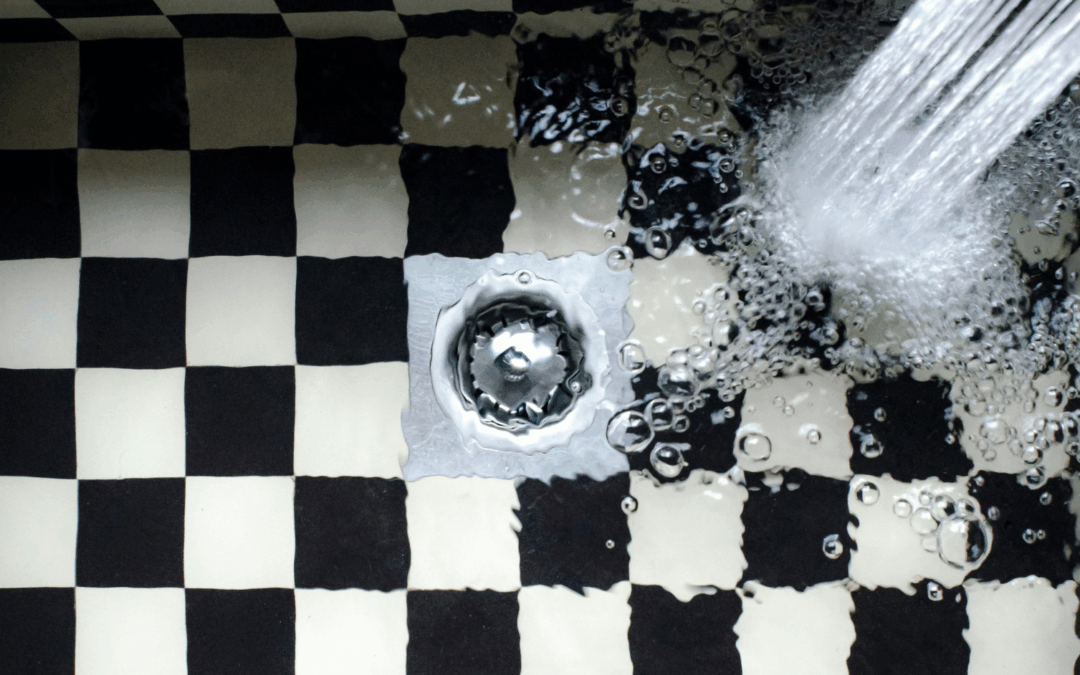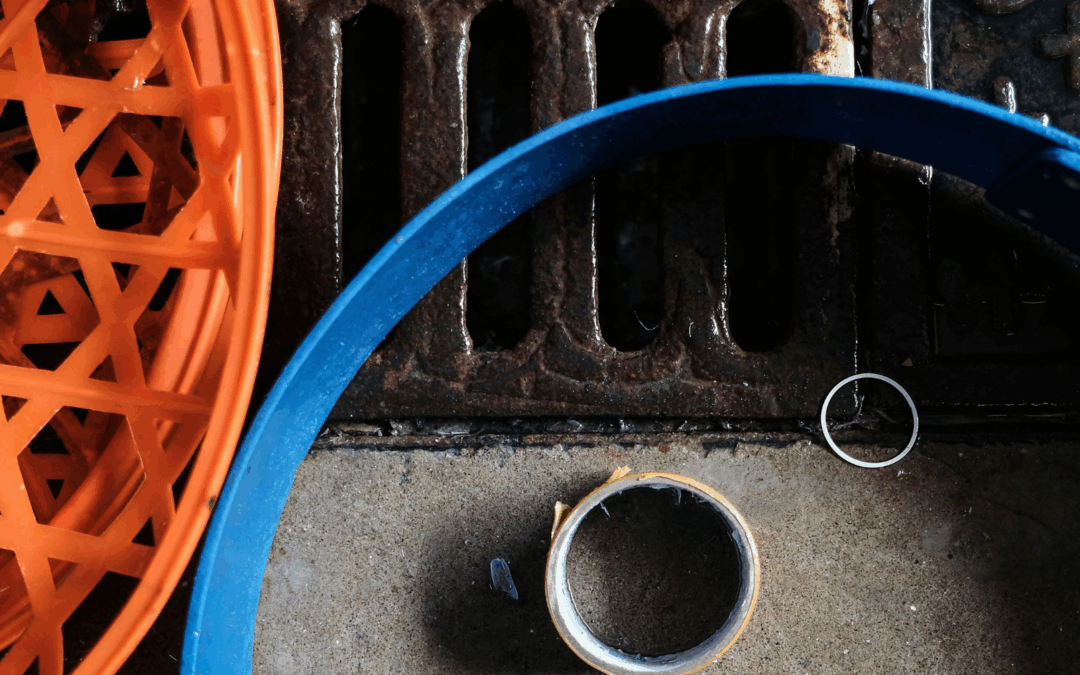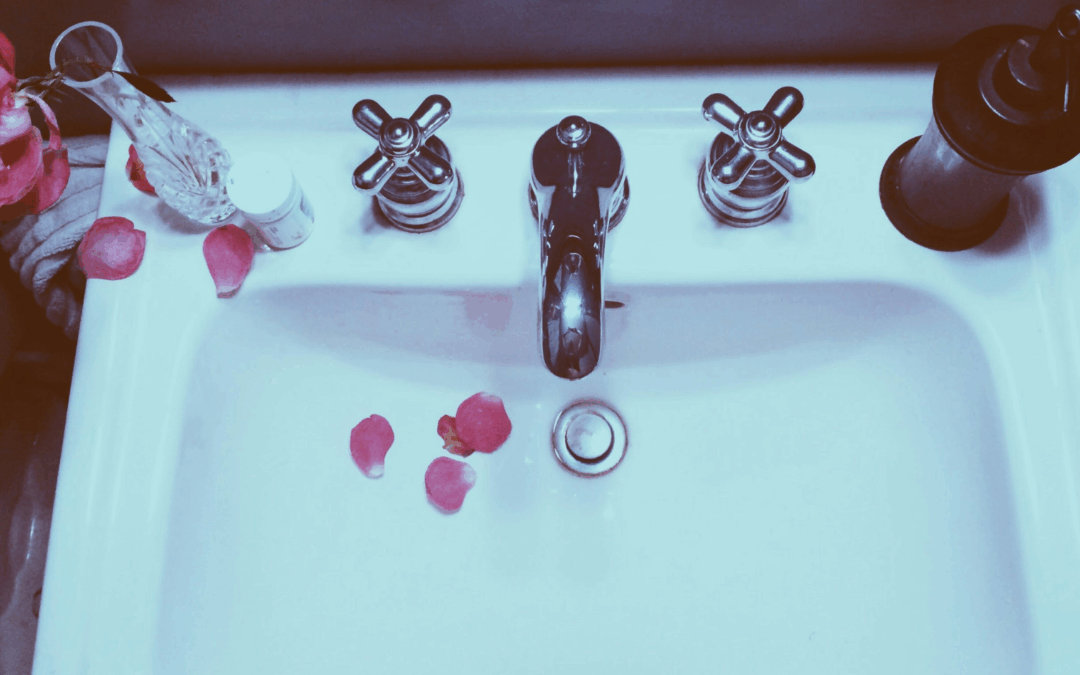Are you considering a water softener installation?
Hard water is a common woe that can go unnoticed, undermining various aspects of life in your home.
A water softener is an unsung hero that can tackle hard water problems and bring a multitude of benefits to your domestic bliss.
Schedule Service Online
Get a free estimate so you know what you're signing up for
"*" indicates required fields
For Emergency Services Call: 410-255-9300
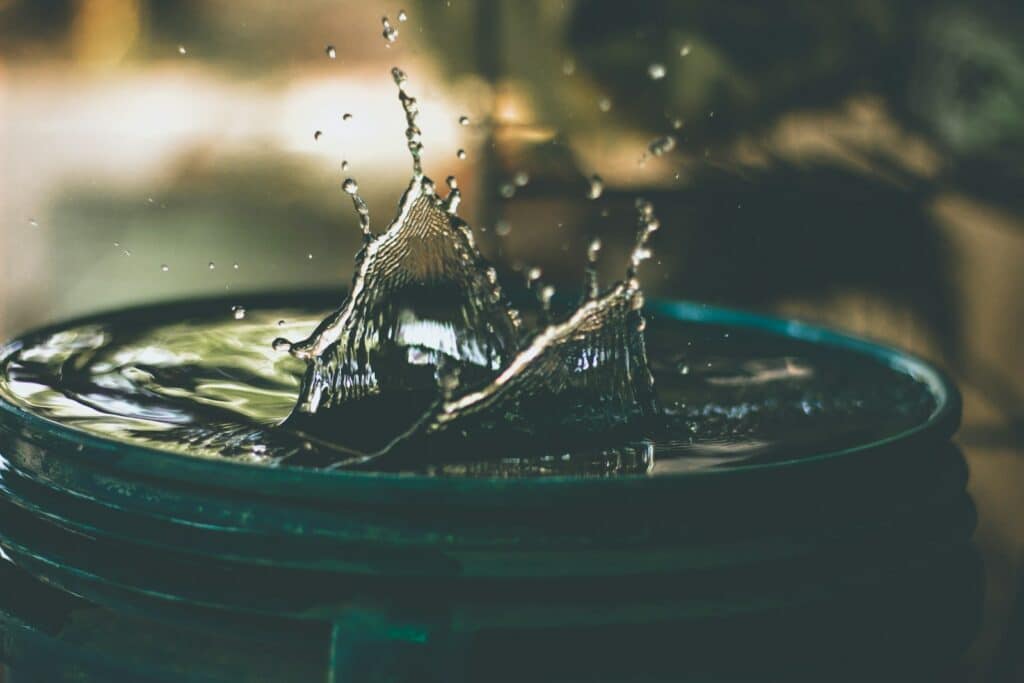
What is a Water Softener System?
A water softener system is a specialized household appliance designed to remove minerals like calcium and magnesium from your water supply.
These minerals are responsible for hard water, a condition that can lead to a host of household inconveniences and damages. Through a process known as ion exchange, water softeners substitute sodium (salt) for the hard minerals, effectively transforming hard water into soft water.
This transformation not only protects appliances and plumbing from scale buildup but also enhances the effectiveness of soap and detergents, providing a more pleasant and efficient home environment.
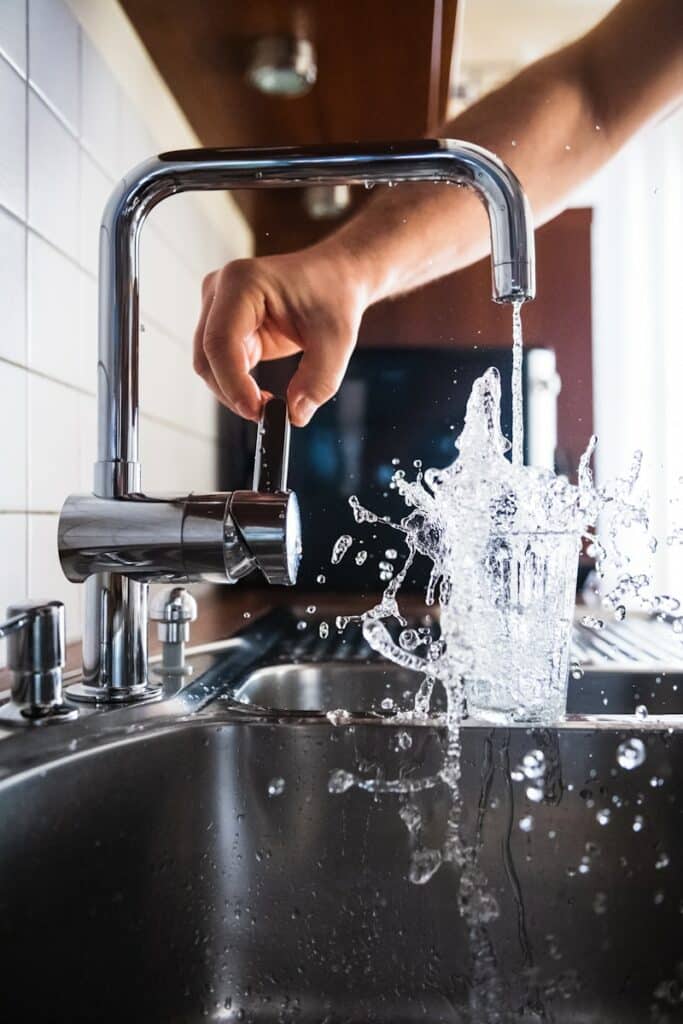
To truly understand how valuable a water softener can be, here are 15 compelling reasons why it’s an essential addition to any homeowner’s checklist.
1. Eliminates Hard Water Issues
Installing a water softener is the surefire way to eliminate the tedious indications of hard water. Say goodbye to those stubborn water spots on dishes, cloudy glassware, and the frequent scrubbing of limescale in your sink and shower. With a water softener, these issues become a thing of the past.
2. Extends Appliance Lifespan
Hard water’s high mineral content can damage your appliances. A water softener helps prolong the life of dishwashers, washing machines, coffee machines, and more by preventing mineral build-up that can clog or affect the performance of these devices.
3. Saves Money on Energy Bills
Hard water reduces the efficiency of water heaters and other appliances, causing them to use more energy to operate. By installing a water softener, you can save on heating costs as your appliances operate more efficiently in soft water.
4. Improves Skin and Hair Health
Hard water can leave your skin dry and your hair looking lackluster. Soft water, on the other hand, is friendlier to your skin and hair, helping to maintain their natural oils and reduce the reliance on moisturizers and conditioners.
5. Reduces Soap and Detergent Usage
With soft water, soaps and detergents lather more effectively, meaning you can use less product to achieve the same level of cleaning. This not only means cost savings but also a reduction in the amount of chemical runoff into water systems.
6. Prevents Scale Build-up in Pipes
The minerals in hard water often lead to the scaling of pipes, which can reduce water flow and even cause blockages. Installing a water softener is a preventative measure that keeps your plumbing in the clear.
7. Enhances Laundry Cleaning
Clothes washed in hard water can feel stiff and look dingy due to mineral deposits. Soft water ensures that your laundry detergent can more effectively clean your clothes, maintaining their brightness and softness.
8. Makes Cleaning Effortless
Cleaning with soft water is a game-changer. Surfaces don’t streak as mineral stains are significantly reduced, and cleaning generally requires less elbow grease, making chores less of a hassle and more efficient.
9. Preserves the Color and Texture of Fabrics
The abrasive nature of hard water can prematurely age fabrics. Water softeners play a critical role in preserving the color vibrancy and the texture of your linens and clothing, so they look better for longer.
10. Enhances Water Heater Efficiency
A layer of scale on the heating element can decrease the efficiency of your water heater. Softened water prevents this layer from forming, ensuring your water heaters operate at peak efficiency for longer.
11. Reduces Plumbing Repairs
The preventative nature of water softeners means fewer plumbing issues. With less scale buildup in your pipes and appliances, you’re less likely to need costly repairs, translating to long-term savings and peace of mind.
12. Environmentally Friendly
The overall reduction in household chemical usage and the conservation of water from efficient appliances contribute to a more eco-friendly home. Water softeners are a green way to maintain a sustainable household.
13. Improves Water Taste
Many find that water softened by a water softening system tastes better as drinking water. The removal of minerals that cause water hardness can lead to a cleaner, more refreshing taste that is both pure and enjoyable.
14. Health Benefits
From softer skin to cleaner clothes, the overall health and hygiene benefits of soft water cannot be understated. Soft water represents a commitment to personal wellness for you and your family.
15. Adds Value to Your Home
For those looking to sell their home, the presence of a water softener can be an attractive feature to potential buyers. It’s a practical upgrade that signals care for the home’s maintenance and the future owner’s comfort.
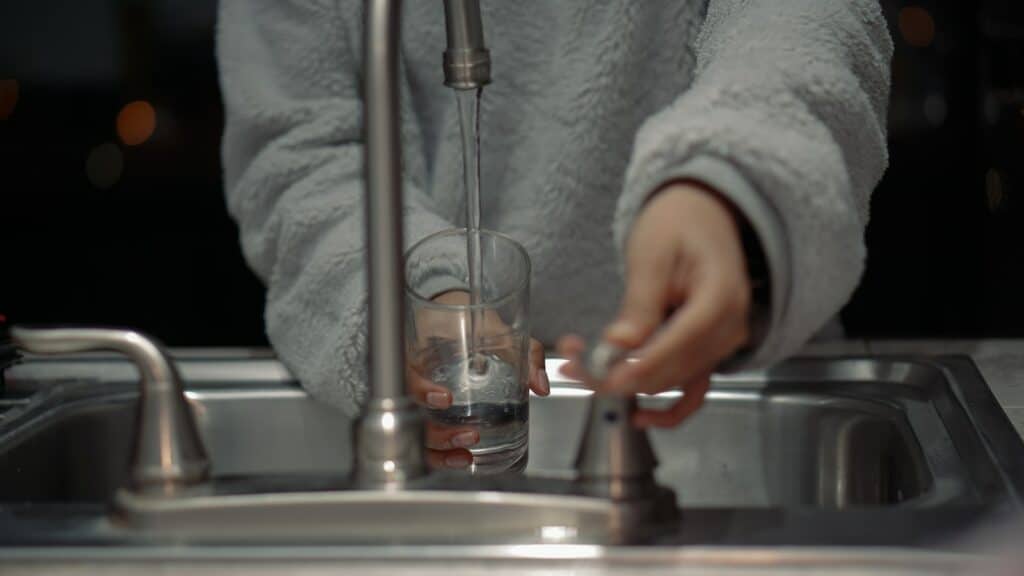
Who Should Consider Water Softener Systems
Water softener systems are highly beneficial for nearly every household, but they are particularly valuable for those residing in areas with naturally hard water supplies.
If you notice signs of hard water such as scale buildup on faucets, dry skin and hair after showering, or a shortened lifecycle for household appliances, a water softener system might be an essential investment for your home.
Additionally, households looking to lower their environmental impact, reduce energy and detergent consumption, and enhance their overall quality of life through improved water quality will find water softeners to be a wise addition.
Ultimately, if you value long-term savings, environmental conservation, and the well-being of your family’s health and home, considering a water softener system should be a priority.
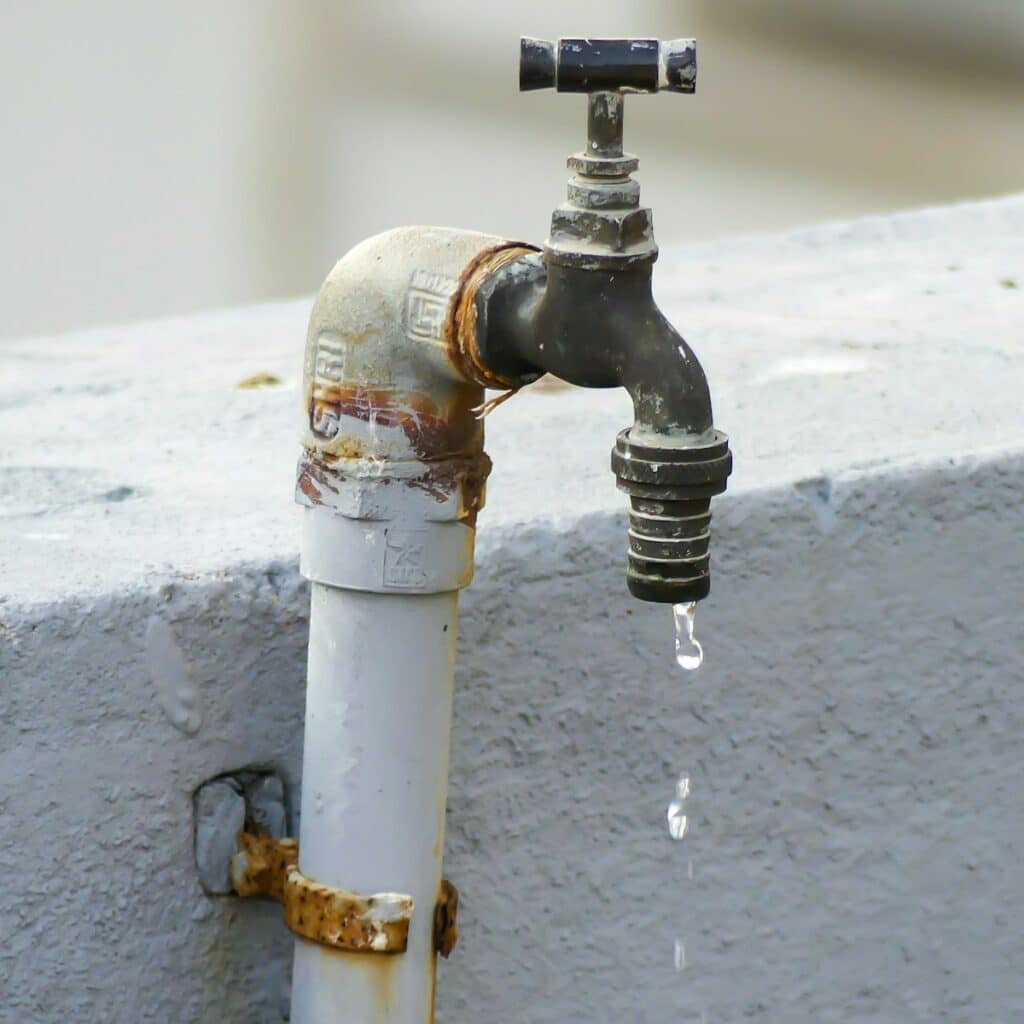
How a Water Softener System Works
At its core, a water softener system utilizes a process known as ion exchange to remove minerals such as calcium and magnesium, which are primarily responsible for water hardness. The system comprises a mineral tank filled with resin beads, which are coated with sodium ions.
When hard water flows into the mineral tank, the calcium and magnesium ions in the water are attracted to and effectively swap places with the sodium ions on the resin beads. This exchange eliminates the hardness of the water.
Over time, the resin beads become saturated with calcium and magnesium ions. To reset their capacity to soften water, the system initiates a regeneration phase. During regeneration, a high concentration of sodium-rich salt solution from the brine tank is flushed through the mineral tank.
The sheer volume of sodium ions forces the calcium and magnesium ions off the resin beads, which are then flushed out of the system via the drain. Following this cleansing process, the resin beads are re-coated with sodium ions, ready to soften water once again.
This efficient cycle ensures that your household enjoys a continuous supply of soft water, contributing significantly to the longevity and efficiency of your appliances, the health of your plumbing system, and the overall quality of your home’s water supply.
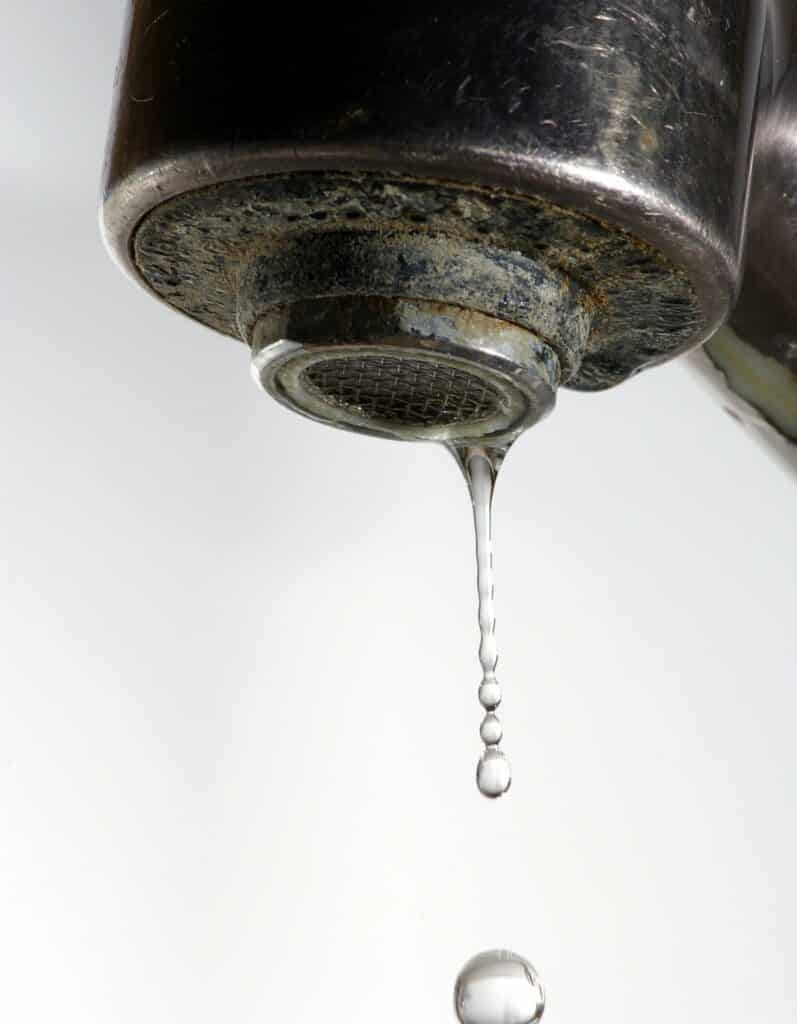
Types of Water Softener Systems
While the goal of all water softener systems is to reduce water hardness, there are several different types that cater to varying household needs and preferences.
The most common ones include:
- Salt-Based Ion Exchange Softeners: These systems use the process described above, where hard water is passed through a resin that exchanges hard ions like calcium and magnesium for sodium or potassium ions. This type is highly effective at softening water but requires regular maintenance, including salt replenishment in the salt tank.
- Salt-Free Water Softeners: Rather than removing hard minerals, these systems crystallize them so they can’t stick to surfaces and cause scale buildup. This option is maintenance-free and uses no water softener salt, making it a more environmentally friendly choice. However, it may not be as effective in very hard water areas.
- Dual-Tank Water Softeners: When there is a high demand for softened water, dual-tank softeners provide a continuous supply. While one tank regenerates, the other supplies softened water. This system is ideal for large families or businesses where water usage is constant.
- Magnetic Water Softeners: Also known as electronic or descaler systems, these use a magnetic field or electrical charge to alter the electromagnetic properties of the calcium and magnesium ions. This method prevents scale and can be easier to install and maintain than traditional systems, though its effectiveness can vary.
- Ion Exchange Systems: These are arguably the most traditional and widely recognized water softeners. They operate on the principle of ion exchange, replacing hardness ions such as calcium and magnesium with sodium or potassium ions. This exchange process transforms hard water into soft water, significantly reducing scale formation and improving the efficiency of household appliances. An ion exchange system requires a brine tank as well as a resin tank to facilitate the softening process. Regular maintenance for these systems includes replenishing the salt in the brine tank to ensure that the system can regenerate the resin beads effectively. Despite the maintenance involved, ion exchange water softener systems are prized for their effectiveness in providing consistent and reliable soft water supply.
Each type of water softener has its advantages and considerations, from the traditional and highly effective salt-based systems to innovative, eco-friendly alternatives.
Selecting the right system depends on household water usage, the hardness of your water supply, and personal preferences for maintenance and environmental impact.
Water Softener Installation Cost
A water softener system cost for installation in your home varies depending on the type of system you choose, the complexity of the installation process, and local labor rates.
On average, homeowners can expect to spend between $500 to $2,500 for a complete water softener system installation. This price range includes the cost of the water softener unit itself, which can vary from $300 to $1,000, and installation labor costs which can range from $200 to $500. High-end or whole-house systems may exceed these estimates, particularly if additional plumbing modifications are required.
It’s also important to consider the ongoing costs associated with maintaining a water softener, such as the purchase of salt or potassium pellets. When planning to install a water softener system, obtaining quotes from several professionals can ensure you find the best service and value tailored to your specific needs.

Consider Getting A Water Softener Installation Done
In conclusion, water softeners are not just a luxury but a smart investment. The benefits they bring to the table in terms of efficiency, health, and home value are truly unmatched.
Whether it’s for the sheer comfort of enjoying a long, relaxing shower without the fear of hard water stains or for the practicality of long lifespan for your appliances, the installation of a water softener is a watershed moment for any homeowner.
If you’re considering a water softener installation, reach out to us at MD Sewer and Plumbing! We handle all plumbing systems and can help get your water softener systems working correctly!

